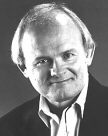|
HOME
PAGE
 Read
This Month's New Articles! Read
This Month's New Articles!
Articles
Archive
Do
you want to be informed when we update our magazine or leave a message?
Click here!
Looking
for a specific author or subject in our magazine? Try our search
page

Who
are we?
Our
Purpose
|
BEYOND
THE MOVIE :
Gladiator
(2000 - 150 minutes, R for graphic combat)
by Raymond Teague
It's
probably a sign of the spiritual awakening of our times when even
a movie that, like this one, is staged in an "arena of bloodshed"
contains a strong spiritual message. Our critic invites us to discover
it, penetrating under the spectacular surface of the film to arrive
at its spiritual core.
Looking
for the inspirational and the spiritual in movies, I had decided
not to see Gladiator.
I have
sat through many earlier gladiator epics from the 1950's and 1960's,
such as Demetrius and the Gladiators and Spartacus,
and had no desire to reenter the arena of bloodshed. But it is my
contention that Spirit speaks to us in all sorts of ways and through
all types of movies.
So
when friends started saying, "Oh, you've got to see Gladiator"
and "Yes, it is spiritual," I reluctantly had to join the throng
flocking to this Roman epic — the story of a Spaniard named Maximus
(Russell Crowe) and his strength and honor in battle, in
loyal service to Rome, and in the Colosseum as a gladiator.
Yes,
Gladiator is a spiritual movie. Look beyond the battles and
the carnage (or away from such scenes and images) and see past the
intrigues of those usually slippery and morally challenged caesars
and their families, and you'll find a powerful, inspiring message.
Gladiator
does for the gladiator genre what The Thin Red Line (1999)
does for war movies — it gives us a glimpse of the metaphysical
within the challenges of broad-scale human confrontations.
Ultimately
and at its core Gladiator is not a revenge movie or even
a battle epic: Its principal theme, so obvious in Maximus' visions
and dialogue, is strongly spiritual.
After
Marcus Aurelius (Richard Harris) chooses Maximus to be protector
of Rome after his death rather than his own son Commodus (Joaquin
Phoenix) to be emperor, the jealous Commodus has Maximus' beloved
wife and son murdered.
As
a result, Maximus proves that all-important strength and honor time
and again, but great deeds and revenge are never his motives. Maximus
wants one thing and one thing only: to join his wife and son. Gladiator,
then, is really a movie about faith and the belief in a joyous afterlife.
Throughout
all of his ordeals, Maximus never waivers in his faith. He is a
devout man who prays and honors his ancestors and who recognizes
the value of positive imaging. "Imagine where you will be and
it will be so," Maximus tells his soldiers. "What we do in
life echoes in eternity."
Before
the deaths of his wife and son, Maximus imagines himself at home
with his crops and family. After their physical deaths, he still
imagines himself with them. He is certain that physical death does
not separate loved ones. "My wife and my son are already waiting
for me," Maximus tells a fellow gladiator. The friend says that
Maximus will meet them again. "Can they hear you, your family
in the afterlife?" Maximus is asked. "Oh, yes," he replies with
conviction.
Maximus'
journey is one that we all make — a return to our spiritual home,
or, some say, simply a remembrance of our spiritual unity.
The
film also suggests the dreamlike nature of reality. Commodus quotes
his father as saying, "It's a dream — a frightful dream — life is."
Commodus says he agrees.
The
challenges of life — represented on a grand scale by events in Maximus'
life — often serve to bring us to a recognition that in some way
human life is a dream and that our goal is really to awaken from
that dream — as Maximus does, to return home.
Much
of the dream seems to revolve around our need for love, which in
itself is a desire to remember our wholeness as spiritual beings,
one with the Love that is Spirit. This theme is seen most dramatically
not only in Maximus' love for his wife and son, but also in Commodus'
hunger for his father's love.
Looking
at his nephew and thinking about his own unrest, Commodus says,
"He sleeps so well because he is loved." Reacting to a lack
of love, Commodus seeks satisfaction in harmful ways. How different
his life would have been — and the lives of Maximus and his family
— if Commodus had received the love he needed as a child.
Copyright
© 2000 Raymond Teague - All Rights Reserved
|

Director:
Ridley Scott
Story
and Screenplay: David H. Franzoni
Cast:
Russel Crowe (Maximus), Joaquin Phoenix (Commodo),
Richard Harris (Marco Aurelio), Connie Nielsen (Lucilla).
Available
on VHS. Buy it now by clicking here.
Available
on DVD. Buy it now by clicking here.
The
author
Do
you want to ask questions to the author of this article?
Send an e-mail to info@bliss2000.com
Meanwhile,
let's introduce him. He is
Raymond
Teague

He
is an award-winning journalist, an editor of spiritual publications,
a popular New Thought speaker, and a lifelong movie buff. He
is also the author of the book Reel
Spirit: A Guide to Movies That Inspire, Explore and Empower,
from Unity House (click here
to read our review of the book.) Order it now through Amazon.com
by clicking here.
|

